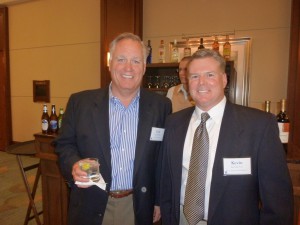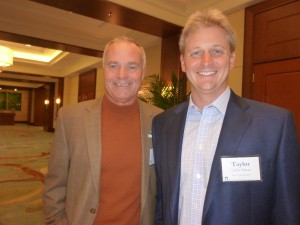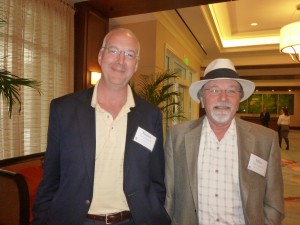May 2013, Vol. 240, No. 5
Features
Nearly 300 Attend INGAA Spring Meeting

With 297 registered attendees, the INGAA Foundation’s spring meeting had a record turnout. Normally held in Texas, the conference was moved to Amelia Island, FL to dovetail with an INGAA analysts’ event.
The Planning and Studies meeting April 4 discussed and ranked 21 studies. This meeting is open to all attendees and the four studies receiving the highest scores were: “Midstream Infrastructure Report Through 2035,” “Improving The Safety Culture: Utilizing The Meta Safety Culture Results To Make A Difference,” “Third Party Inspection,” and “Criteria For Pipelines Co-existing With Power Lines.”
Topics covered in the general session included: “Two Energy Imperatives: Scale and Density” presented by Texas author Robert Bryce; “Priorities For Interstate Natural Gas Pipelines,” a panel moderated by Greg Harper of CenterPoint Energy; “Market Drivers Affecting Demand For Pipeline Services and Infrastructure,” with panelists Robert Ineson of IHS CERA and Bruce Henning of ICF.
The luncheon speaker was Cas Holloway, deputy mayor for Operations in New York City who discussed the increased use of natural gas to power NYC.
The following day included a “Safety Message From NTSB” by Chairwomann Deborah Hersman and the “Washington Report” from Cathy Landry, director of Communications for INGAA and the INGAA Foundation.
The current INGAA Foundation Chairman is Joe Ramsey, group vice president, Project Execution, Spectra Energy. For more information on the INGAA Foundation visit: www.ingaa.org.
Before the conference, Don Santa, president and CEO of INGAA, released a statement urging the Federal Energy Regulatory Commission and the electric power industry to take prompt action to address the deficiencies in current electric power market rules that create unnecessary and avoidable risks to electric power reliability:
“We appreciate the House Energy and Power subcommittee’s attention to the matter of gas-electricity reliability. We recognize that many see the problem as one of insufficient pipeline capacity. While we agree that pipeline capacity expansion in some regions is necessary, it is important to clarify that the root cause of the problem is a structural flaw in the deregulated wholesale electric power markets. These markets fail to compensate for electric reliability, regardless of fuel the generator uses to create electricity. This, in turn, discourages electric generators from holding firm pipeline capacity, a prerequisite for natural gas pipeline expansion.
“The current legal and regulatory framework for natural gas pipeline expansion, which requires pipelines to demonstrate market need, most typically with customer contracts for firm, long-term service, works. Interstate pipelines have built about 10,000 miles of pipeline in the past decade.
“In the past year, thanks to FERC’s decision to hold technical conferences on this issue, we’ve learned what the problems are. Now is the time for FERC to demonstrate leadership by encouraging and, if necessary, requiring amendments to electric power market rules to ensure continued reliability of the bulk power system,” stated Santa, a former FERC commissioner.















Comments